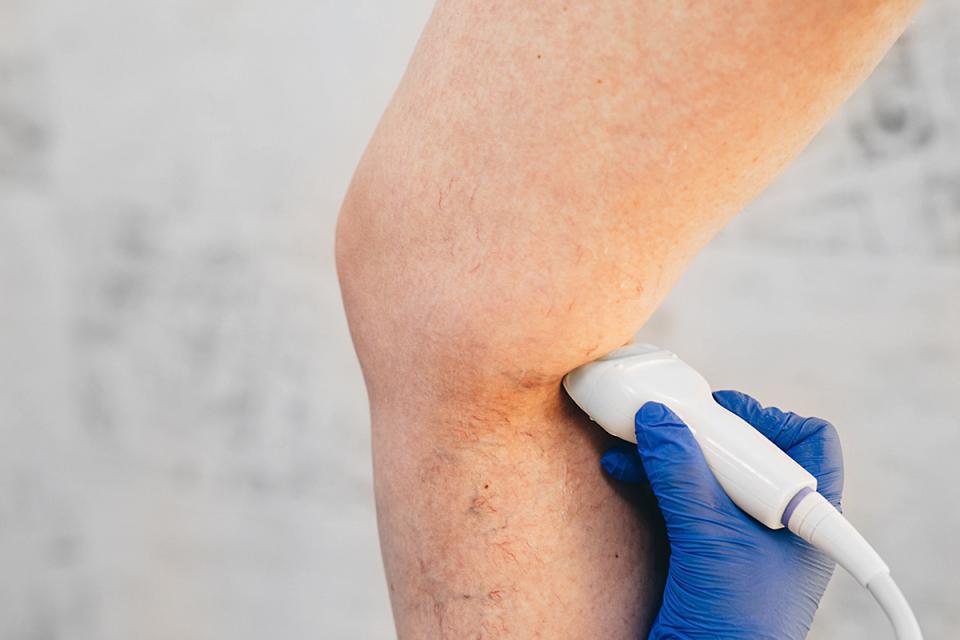Arterial vascular disease
Sometimes, problems can develop that require evaluation by a doctor.
"Symptoms of what we call arterial vascular disease can include pain in the extremities, skin changes or even muscle paralysis in extreme cases," Dr. Aldailami said.
These issues can be caused by the buildup of plaque, cholesterol and calcium that narrow the artery channels. Sometimes a blood clot can form, and that can put the health of your limbs in jeopardy or may even be life-threatening, he said.
Plaque build-up can weaken the wall of the arteries and cause the wall to expand and form an aneurysm, a balloon-like swelling on a vessel. "An aneurysm could potentially rupture and result in serious, or even fatal, bleeding," Dr. Aldailami said.
Cardiologists and vascular specialists like Dr. Aldailami often work together to help patients.
"Doctors use a variety of sophisticated technologies to assess your cardiovascular system," he said. "It's difficult for any single individual physician to be an expert in all of them, so we often work together as a team, closely coordinating all of our efforts."
Diagnosis and treatment
For example, he said, "if we encounter a patient with hardening of the arteries (called atherosclerosis) in one area of the body, we often have to screen all the other areas to identify where the disease has had its effects." Physicians use non-invasive methods such as ultrasound, X-rays and CT scans to help evaluate the magnitude of the problem.
Vascular specialists are able to treat vascular system conditions with modern technology. For example:
- Blocked arteries can be treated with tiny balloons to open the blocked area. A stent inside the artery helps support its new expanded size.
- Clot-dissolving agents speed up removal of blood clots.
- Stents covered with special material simulating an artificial artery can be inserted inside an aneurysm to seal it and redirect the blood flow.
How to protect your vascular health
Good vascular health, Dr. Aldailami said, requires regular check-ups with your primary care physician. He or she will monitor your blood pressure, levels of cholesterol and lipids (fats, oils and hormones), blood sugar and other important levels in your blood.
"It's also important to follow a healthy low-fat diet, get some modest exercise daily and stop any use of tobacco," Dr. Aldailami said.
